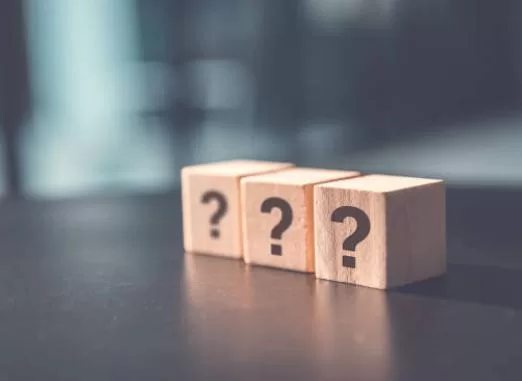How Can I Improve My Problem-Solving Skills For Self-Improvement?
Learn how to improve problem-solving skills for self-improvement

Selfpause Affirmation App
Download the app to get 1,000’s of affirmation meditations and everything you need to write, record and listen to your own.
Problem-solving is an important skill that can help you improve in many areas of your life. Having good problem-solving skills can help you reach your goals, whether you want to move up in your career, improve your relationships, or just be a better version of yourself. In this article, we’ll talk about how you can improve yourself by getting better at solving problems.
Know what the problem is

To solve a problem, the first step is to understand it. Before you can start looking for solutions, you need to know what the problem is and why it’s important to solve it. Start by asking questions about the problem and getting information about it. This could mean doing research, talking to experts, or just thinking about what you’ve been through. If you take the time to figure out what the problem is, you will be better able to find a solution that gets to the root of the problem.
Describe the issue

The next step is to define the problem once you have a good idea of what it is. This means breaking the problem into smaller pieces that are easier to handle. By defining the problem, you can start to figure out what needs to be done and how to do it. It can also help you figure out what assumptions or biases might be affecting the way you think, so you can approach the problem with a clearer head.
Think of ways to fix things

Now that you know what the problem is and have a clear plan, it’s time to start thinking of ways to solve it. This means coming up with as many ideas as possible without judging them too quickly or ruling some of them out. You could try things like mind mapping, free writing, or group brainstorming sessions to do this well. The goal is to come up with as many possible solutions as possible, even if some of them seem unlikely or impractical at first.
Evaluate options

As soon as you have a list of possible solutions, you can start judging them. This means weighing the pros and cons of each option, thinking about the possible risks and benefits, and figuring out how well each option solves the problem at hand. You could use tools like decision matrices or cost-benefit analyses to help you do this well. The goal is to find the most likely solution to work and the one that fits your goals best.
Use and keep an eye on

Now that a solution has been chosen, it’s time to use it. This means making a plan for how it will be done, setting goals and deadlines, and figuring out what resources or help you might need. Once you’ve put the solution into place, it’s important to keep track of your progress and see if it’s working as planned. This could mean keeping track of data, asking for feedback from other people, or just thinking about your own experiences. If the solution doesn’t work the way you thought it would, you might need to change your approach or try something else.
Tips for improving problem-solving skills
Practice, practice, practice. Like any other skill, problem-solving takes practice. Look for ways to solve problems in your daily life, whether at work, at home, or in your community. The more you try to find and solve problems, the better you will get at it.
Learn from mistakes. Not every time you try to solve a problem will be a success. Take the time to think about what went wrong and what you can learn from the experience when you fail. Use your mistakes as chances to learn how to solve problems better.
Keep an open mind: to solve problems, you need to be creative and flexible. Be willing to think of solutions that aren’t the norm and to change your plan as you learn more. Keeping an open mind can help you find solutions that didn’t seem obvious at first.
Work with others. Solving problems is often a group effort. Look for ways to work with other people, both at work and in your personal life. Working with others lets you bring a wide range of ideas and skills to the table, which can help you come up with more creative and effective solutions.
Stay curious. Being curious is the key to solving problems. Ask questions, look for new information, and keep up with changes in your field to keep yourself interested. The more curious you are, the more likely you are to find problems and think of creative ways to solve them.
Think critically. Being able to think critically is an important part of being able to solve problems. To get better at critical thinking, you should practice analyzing information, judging arguments, and spotting assumptions and biases. The more you think critically, the better you will be at solving difficult problems.
Accept uncertainty. Solving problems often involves a certain amount of uncertainty. Learn to be comfortable with this uncertainty and use it as a chance to try out different things. By welcoming uncertainty, you can get used to ambiguity and be better at coming up with creative solutions.
Journaling for problem-solving
Writing in a journal is one way to improve your ability to solve problems. Keeping a journal can help you think about how you think and find patterns and biases that might be affecting the way you think. Here are some tips for using journaling for problem-solving:
Start by figuring out what the problem is. Before you start writing in your journal, take some time to figure out what you want to solve. This will give your journaling a clear focus and keep you on track.
Use writing prompts to help you get started: If you want to get the most out of your journaling, you might want to use writing prompts to help you. Some suggestions that might help you solve a problem are:
What am I trying to fix?
What do I think is going on with the problem?
What might be some possible ways to solve the problem?
What’s good and bad about each solution?
What are the pros and cons of each answer?
How do I put each solution into action? What do I need?
What could stop you from putting each solution into action?
How can I keep working to solve this problem and keep myself motivated and on task?
Write often: If you want to get the most out of journaling, try to write often. This could mean setting aside a few minutes every day to think about how you’re solving problems or writing in a journal regularly to track your progress.
Think about how far you’ve come. As you write in your journal, take some time to think about how far you’ve come. Think about what’s going well, what could be made better, and what you’ve learned about how to solve problems.
Plan your next steps in your journal. Once you’ve thought about how far you’ve come, use your journal to plan your next steps. Think about what you’ll need to do to put your chosen solution into action and what resources you’ll need.
Conclusion
A big part of improving yourself is getting better at solving problems. By getting good at solving problems, you can make it easier to reach your goals and deal with problems in your personal and professional life. You can improve your problem-solving skills in many ways, such as by brainstorming, evaluating, or writing in a journal. By using these skills often and keeping an open mind and curious mind, you can become a better problem-solver and a more successful person.
